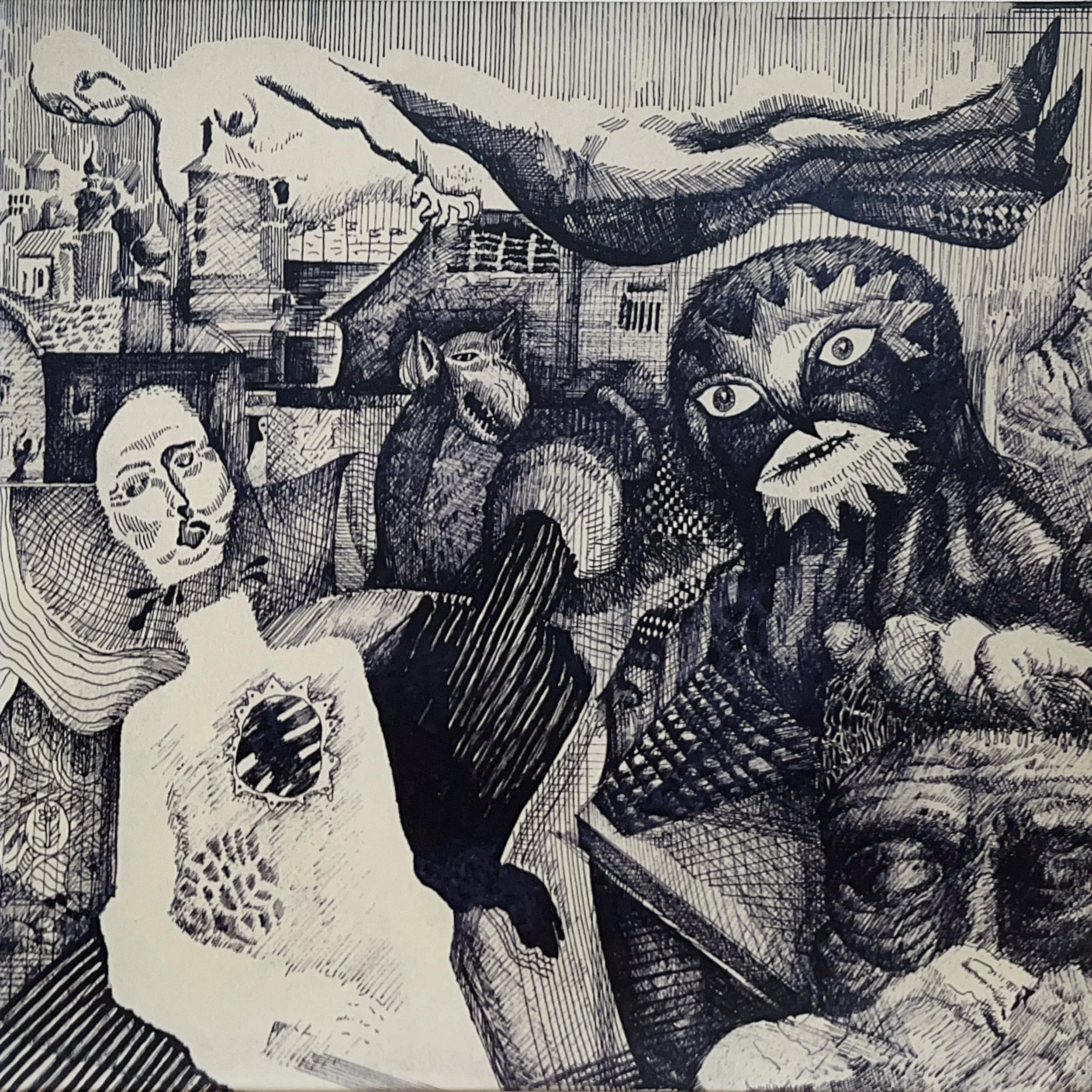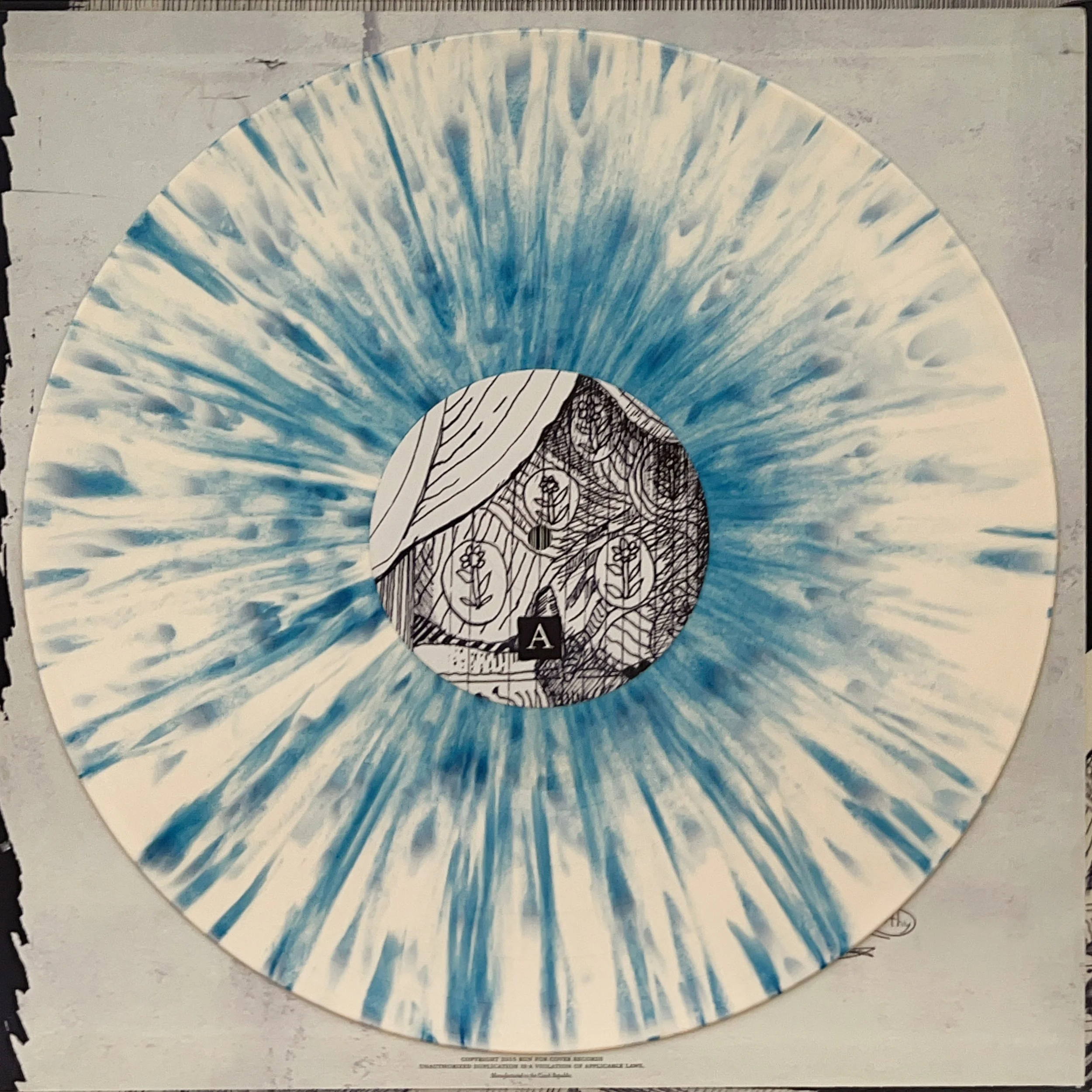mewithoutYou — Pale Horses
It is always my pleasure to write about one of my favorite albums, even more so when it is underrated. Pale Horses is a perfect album.
At some point between their fifth LP and Pale Horses, the Weiss brother’s father died. Aaron Weiss, having written their last record more or less about one concept, wanted to write about his grieving through a more universal lens. He sought to create a focused yet varied narrative. Other names considered for the record were: Christmas Cards For The Mentally Ill, Goodbye, Comedy, Pale Horse Comedy, and Pale Horse Songs. The album was released in the summer of 2015 to favorable but not rave reviews.
The album begins with distant and forlorn strings, playing a funeral dirge with a softer edge. Weiss introduces the album with an immediate allusion to one of the many themes of the album. In the book of Revelations, there are four horsemen of the apocalypse and upon a pale ashen horse sits the harbinger of Death. Aaron feels drawn back into the fray in writing lyrics for another album. The band completed most of the music before he even began on lyrics, which was a first for the band. Sensing the end of the road for the band Weiss expresses he thought he was done, but here he is again to talk about death. This song also establishes the motif of signs and their ascribed meanings. It seems Weiss is searching for meaning with this album but is failing to see any of the signs in his life aligning with what he needs. He references platitudes levied toward him, but still finds himself coming up with nothing. In a begrudging manner he determines while still feeling quite nihilistic, he can eke out a few more songs. This is our introduction to the album, a nonplussed frontman ruminating on death because what does it matter. “Watermelon Ascot” is more akin to rap in its verbosity and like a grad student dissertation in its rich use of references. In the first few lines alone he references a teetotaler domestic terrorist, an ADHD holocaust pun, and a famous soap bottle… it is all too much to dive into here. On the whole, the song seems to be self reflective in Weiss addressing his own manufactured dread. He uses various outlandish allusions to detail his journey as an artist, and wonders why he feels worried about the end of life (or the band). Weiss continues his journey inward, remarking on another event which occurred in his life. He details his complex feelings on his recent nuptials and likens it to a divorce (from God). Having sworn himself to celibacy earlier in life, he takes his new courtship as an affront to God. This proves out more of his conflict with being happy. A marriage should be a joyous occurrence, but has he not lost a part of himself in wedding another, and what is his relationship with God now? “Mexican War Streets” is yet another journey inward and in many ways addresses the same concepts as the previous song. This track however, focuses more on mental health and how the entry of his wife into his life affected his psyche. Weiss alludes to a suicide attempt which was thwarted not by his wife or any other people in his life but rather by his own pursuit of knowledge and the need to continue it. The name of the song is a reference to a neighborhood in Pittsburgh, where many of the streets are named after battles and generals, this is a metaphor for inner turmoil and the glorification of combat in society. The Ceremony of the Red Heifer was a ritual in the old testament of sacrifice to purge sins and disease. However, this track is also a reference to many Christians who believe the birth of a red cow will signal the return of Christ and thus the end times. This song features some good screaming and transfixing drumming, it was a great opener when I saw them in 2018. We take a break from reality and biblical prophecy (kind of), as Weiss recounts a dream of his in which he beseeches a shape shifting dream entity to take the form of his dead dad so he can see him meeting his new wife. Here in the dream two of the main themes of the album converge: marriage and death. Weiss recites the cry Jesus uttered while being crucified in the original Aramaic. “My God, Why have you forsaken me?” “Blue Hen” kicks off Side B with some driving instrumentation which is uncommon for this more or less down beat album. This song could perhaps still be interpreted as a dream where Weiss communes with Death. The Blue Hen does not have any religious significance which I could find but instead refers to the state bird of Delaware. During the Revolutionary War, Captain Caldwell (of Delaware) and his men would engage in cock fights with the aforementioned birds which were said to be resilient, the men were then compared to these birds after proving themselves in battle etc. etc. This is all to say, Death compares Aaron to this brave avian breed, and says regardless of your strength and resilience I will destroy you. This seems to be the first time on the album where Weiss is reckoning with the absolute concept of death. “Lilac Queen” is another song about Weiss’ wife. He compares himself to awful things like ISIS while casting her in a pleasant light (more or less). This section of the album is the first to introduce the nuclear allusions. Name checking, Three Mile Island, Weiss both invokes his own hazardous marriage whilst also assuming the world will end with radioactive fallout. “Magic Lantern Days” is a rewriting of the hymn “Star In The East.” The hymn focuses on shepherds going to gaze upon Christ in the manger. Weiss changes the lyrics to be about the world coming to love and worship the bomb. With references to the Oak Ridge TN nuclear facility and allusions to the Bikini Atoll testing, Weiss rewrites the reverence for the virgin birth to be about mankind loving its own planned desolation. In the end, he longs for simpler times, and sequesters himself in an imagining of his wife and him recreating antiquated movies and plays rather than face the atomic certainty encroaching each day. We are soon taken to a new land of references on the penultimate song, with heavy Shakespearean allusions. “Birnam Wood” references the prophecy of the witches to Macbeth. They insist MacBeth won’t be defeated until a forest rises up against him. This comforts the paranoid Macbeth, however, his undoing occurs when his enemies disguise themselves amongst the foliage of the wood to storm his castle. Weiss sees God, life, and prophecy closing in on him. His thoughts are in a dark place, he wonders if God has grown tired of him or again forsaken him. At his most faithless and lost he searches for one final sign from God. Beginning with the same notes from the opening song, but tuned down, we reach the narrative conclusion of the album on “Rainbow Signs.” The soft acoustic and forlorn guitar now sounds to be that of an air raid siren and the lyrics repeat themselves as judgment is now here. The horseman of Death has been present throughout many of the songs, and yet… have we not met all of the horsemen by now? The red horseman of War came through a neighborhood in Pittsburgh. The white horse of Conquest has lurked through each song which mentions his newest romantic conquest. The black horse of Famine was present from the start as well, Weiss described his crops (music) being reaped, his produce withering. When the apocalypse occurs in the book of Revelations it is said there will be a rainbow encircling the throne of God to confirm to believers his promise of salvation. Weiss remarks of God’s initial rainbow sign to Noah when the flood had ended, and says perhaps our next rainbow sign will be due to the atmospheric disturbances created by hydrogen bombs. We then drift to his wedding day, where he worries about more inane things like his receding hairline. This can’t last as he then thinks of how a mushroom cloud will obscure any rainbow sign, no one will be saved. From here the song becomes heavy where it was previously softer. We take on the point of view of the horsemen and their tasks to bring about the end of the world. The cataclysm of it all grows and grows as electronic trills cascade and wail. Each note washes over the listener in a devastating wave of sorrow. The electric guitar sputters as the world seems to collapse around the entire affair… and then. We return to a placid dream of Weiss’. He is now the shape shifter and became his own father. However, at the end with the certainty of death, he doesn’t seek to meet his son’s new wife, or do anything to avert the death of all things. Instead he remembers an inside joke between him and his son, and that is enough.
Must Listen To: Rainbow Signs
This is my favorite song by one of my favorite bands off one of my favorite albums. There is no comparison for the staggering scale and quiet intimacy contained within this track. A truly special listening experience.


